Retro Replay Review
Gameplay
Call of Atlantis blends classic match-three action with hidden-object challenges to create a varied puzzle experience. At its core, you begin each chapter by gathering thematic artifacts—feathers, sunflowers, or plant fragments—dragging them onto Poseidon’s altar seals to unlock the path forward. This simple drag-and-drop mechanic gives a tactile introduction to the adventure, setting the stage for deeper brain-teasers across seven civilized lands.
(HEY YOU!! We hope you enjoy! We try not to run ads. So basically, this is a very expensive hobby running this site. Please consider joining us for updates, forums, and more. Network w/ us to make some cash or friends while retro gaming, and you can win some free retro games for posting. Okay, carry on 👍)
Once a seal is broken, you’re transported to the first land—Rome—where match-three grids demand swift swaps to line up rows of three or more identical symbols. Timing is critical: each board is timed, and power-ups like the Bomb of the Titans or Lightning of Zeus can only tip the scales if you build enough combos. Larger matches charge special bombs, while four- or five-in-a-row grants you destructive abilities that clear clusters of gems, helping you funnel key puzzle pieces to the bottom of the board.
Between these fast-paced matching stages lie ornate hidden-object scenes. Here, artifacts shatter into multiple fragments scattered across rich illustrations of mythic temples or bustling markets. Locating each shard unlocks the next phase: assembling the broken crystal, only to see it splinter once more and challenge you to find every final piece. This back-and-forth rhythm—swap, gather, assemble, repeat—keeps the gameplay fresh and steadily raises the stakes as you voyage from Greece to Troy, Phoenicia, Babylon, Egypt and Carthage in your quest to restore Atlantis.
Graphics
Visually, Call of Atlantis is a treat for fans of mythological lore. Each land bristles with period-inspired detail: Roman columns draped in ivy, sun-dappled Greek temples, and the pyramidal grandeur of ancient Egypt. The hidden-object backdrops feel hand-painted, with layers of depth that invite close inspection and reward your eagle eye when you spot the tiniest shard of a lost crystal.
The match-three boards are equally polished. Gems, icons, and power-up tokens gleam with smooth animations whenever a special bomb explodes or Zeus’s lightning forks across the screen. Though the game doesn’t push the limits of modern graphics hardware, it leans into a colorful, cartoon-realistic style that remains readable even in frantic, timed stages. Frame rates stay rock-solid on typical home PCs, ensuring smooth swapping and explosive visual feedback without lag.
Small touches—like rippling water effects around the altar, subtle particle trails on power-ups, and quick scene transitions—add polish without distraction. Whether you prefer a zoomed-in view of the match board or a wide shot of a bustling Phoenician marketplace, the art direction consistently reinforces Atlantis’s grandeur and Poseidon’s ire, immersing you in a sprawling, mythic world.
Story
Call of Atlantis opens with a classic Greek tragedy: a once-thriving civilization has angered its sea-god patron. Poseidon, in divine retribution, absconds with the seven crystals of power that sustain Atlantis’s wealth and prosperity. He scatters them across the known world—Rome, Greece, Troy, Phoenicia, Babylon, Egypt, and Carthage—and seals his altar, daring would-be heroes to retrieve what was lost.
As you journey from one land to the next, the narrative unfolds in bite-sized text and illustrative cutscenes. Though the emphasis remains squarely on puzzle solving, each region’s backstory—its customs, architecture, and tragedies—adds flavor to the mechanics. You aren’t just matching tiles; you’re restoring hope to a drowned empire and learning how each culture’s artifacts tie into the larger mythos.
While there’s no dialogue tree or character development to rival an RPG, the story strikes the right balance between motivation and brevity. Poseidon’s presence looms like a silent antagonist, and the promise of salvaging Atlantis keeps the stakes high. By the seventh seal, the simple premise of “find the crystals, save the city” feels both familiar and freshly heroic.
Overall Experience
Call of Atlantis offers over a dozen hours of puzzle-solving variety. The alternation between timed match-three stages and leisurely hidden-object hunts hits a satisfying cadence: frantic bursts of strategy followed by methodical searches. This ebb and flow ensures neither mode overstays its welcome, maintaining player engagement across all seven lands.
Difficulty ramps gracefully. Early puzzles teach you to harness bombs and power-ups, while later levels demand precise combos and lightning-quick swaps under pressure. The hidden-object segments grow more intricate too, with crystal fragments cleverly tucked into ornate scenery. If you’re a completionist, the challenge of finding every shard adds replay value long after the main storyline ends.
In short, Call of Atlantis melds two beloved casual-puzzle genres into an accessible, theme-driven adventure. Its polished presentation, thoughtful pacing, and mythic flair make it ideal for players seeking a narrative hook alongside compelling brain teasers. Whether you’re new to match-three or a seasoned hidden-object sleuth, this sunken city’s call is one you’ll be eager to answer.
 Retro Replay Retro Replay gaming reviews, news, emulation, geek stuff and more!
Retro Replay Retro Replay gaming reviews, news, emulation, geek stuff and more!
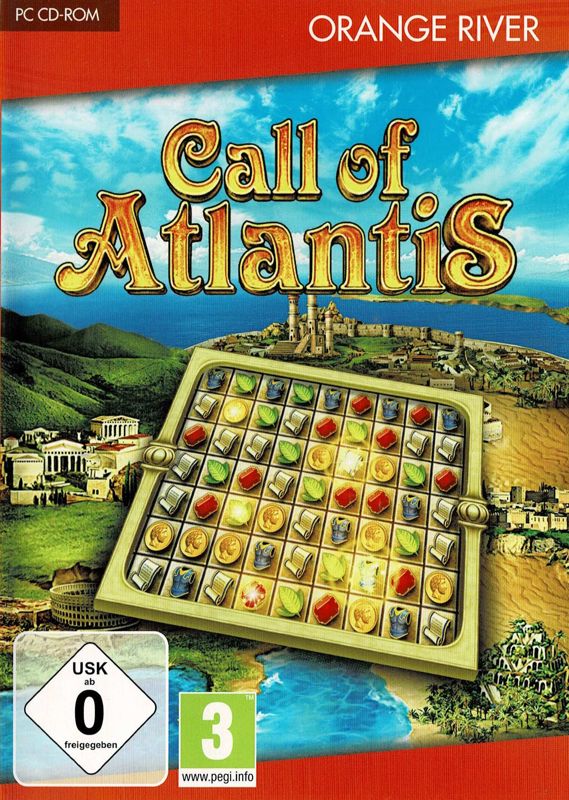
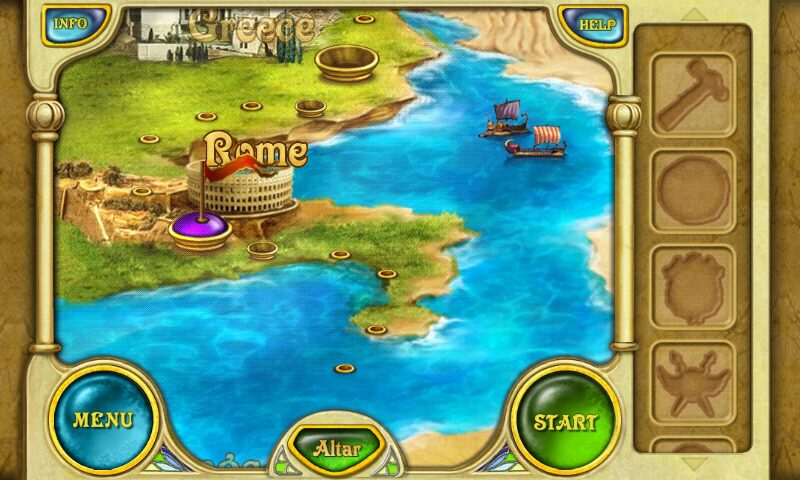
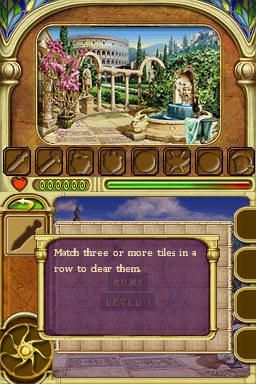
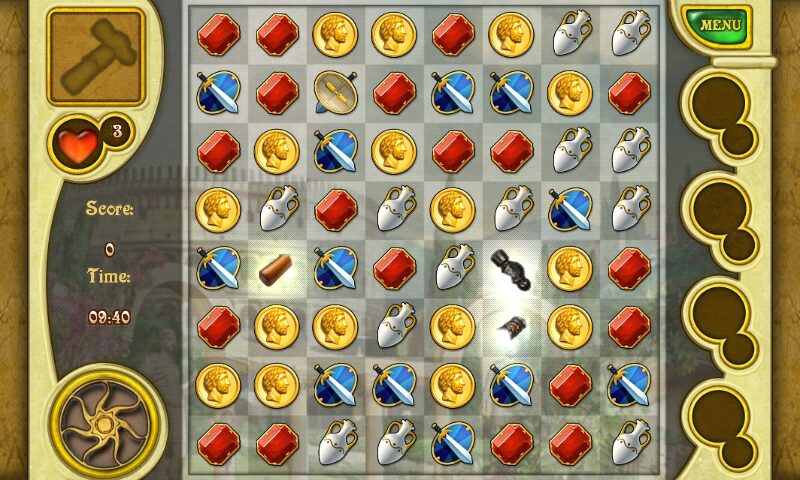
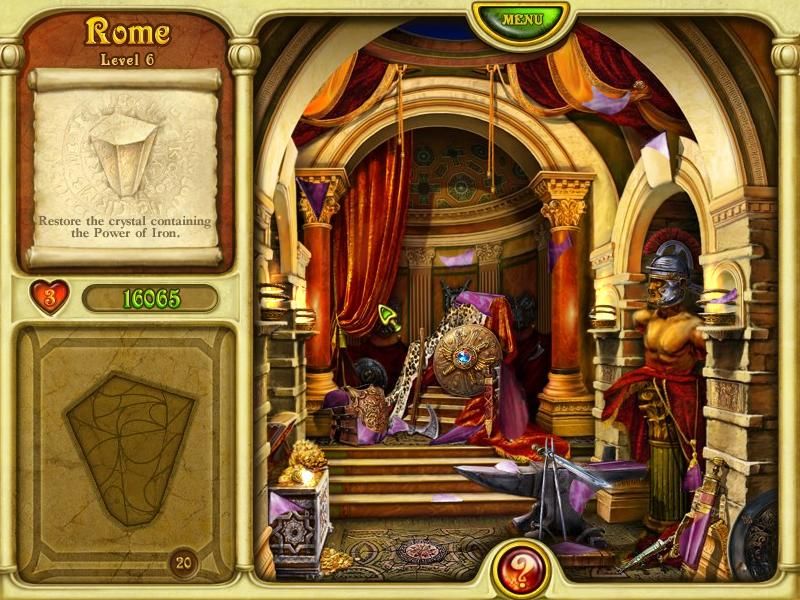




Reviews
There are no reviews yet.